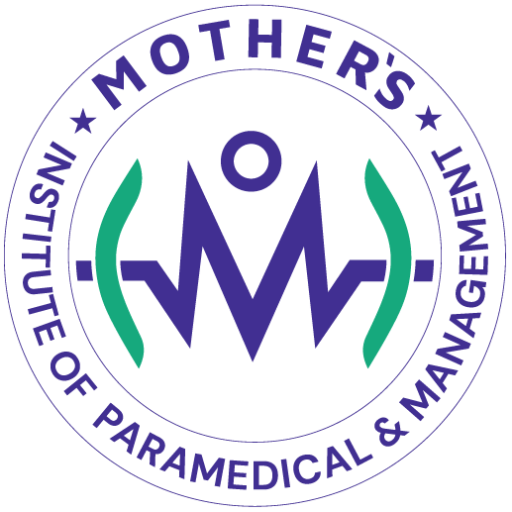The Diploma in Hospital Nursing & Midwifery program is designed to prepare individuals for careers as registered nurses and midwives within hospital settings. This diploma provides students with the knowledge, skills, and clinical experience necessary to deliver high-quality nursing care to patients across the lifespan, including maternal and newborn care. The program integrates theoretical learning with practical training, ensuring graduates are well-prepared to meet the diverse healthcare needs of individuals, families, and communities in hospital environments.
- Foundations of Nursing:
Students study the fundamental principles of nursing practice, including the nursing process, therapeutic communication, ethical and legal considerations, and professional standards of care. They learn to provide holistic, patient-centered care within the context of hospital environments. - Anatomy and Physiology:
A strong understanding of human anatomy and physiology is essential for nursing practice. Students learn about the structure and function of the human body systems, including the integumentary, musculoskeletal, cardiovascular, respiratory, gastrointestinal, genitourinary, endocrine, and nervous systems. - Medical-Surgical Nursing:
This segment focuses on the nursing care of patients with medical and surgical conditions commonly encountered in hospital settings. Students learn about disease processes, diagnostic procedures, pharmacological interventions, and nursing management of medical and surgical patients across the lifespan. - Maternal and Newborn Nursing:
Students gain knowledge and skills in providing comprehensive care to women during pregnancy, childbirth, and the postpartum period, as well as to newborns during the neonatal period. They learn about prenatal care, labor and delivery, breastfeeding support, newborn assessment, and care of the newborn with special needs. - Pediatric Nursing:
Students learn about the unique healthcare needs of infants, children, and adolescents, including growth and development, common pediatric illnesses, immunizations, health promotion, and family-centered care. They develop skills in pediatric assessment, medication administration, and communication with pediatric patients and their families. - Mental Health Nursing:
Students gain an understanding of mental health disorders, therapeutic interventions, and psychosocial support strategies for patients with mental illness. They learn to assess mental health needs, implement nursing interventions, and promote recovery and resilience in individuals experiencing mental health challenges. - Community Health Nursing:
This segment focuses on nursing practice in community settings, including health promotion, disease prevention, and population-based interventions. Students learn about community assessment, health education, epidemiology, environmental health, and healthcare delivery systems. - Midwifery Care:
Students learn about the principles and practices of midwifery care, including prenatal care, intrapartum care, postpartum care, newborn care, and family planning. They develop skills in childbirth assistance, perinatal monitoring, lactation support, and postpartum support for mothers and newborns. - Clinical Practicum:
Hands-on clinical experience is an integral part of the curriculum, allowing students to apply theoretical knowledge and develop practical skills in real-world healthcare settings. Clinical rotations take place in hospital units such as medical-surgical, maternity, pediatric, psychiatric, and community health settings, under the supervision of experienced nurse preceptors.
- Registered Nurse:
Working as registered nurses in hospital settings, providing direct patient care, coordinating care delivery, collaborating with healthcare team members, and advocating for patients’ health and well-being across the lifespan. - Midwife:
Practicing as midwives in hospital maternity units, birthing centers, or community health settings, assisting women during pregnancy, labor, and childbirth, providing prenatal and postpartum care, and promoting maternal and newborn health. - Specialty Nurse:
Pursuing specialized roles within hospital nursing practice, such as critical care nursing, emergency nursing, perioperative nursing, oncology nursing, or geriatric nursing, based on individual interests and career goals. - Nurse Educator:
Assuming roles as clinical educators or faculty members in nursing education programs, providing instruction, mentoring, and guidance to nursing students in hospital-based clinical settings. - Nurse Manager/Administrator:
Advancing into leadership roles as nurse managers, nurse supervisors, or nurse administrators within hospital units or healthcare organizations, overseeing nursing staff, managing resources, and ensuring quality patient care delivery. - Community Health Nurse:
Working in community health settings, such as public health departments, home health agencies, or community clinics, providing health promotion, disease prevention, and primary care services to individuals, families, and communities.
The Diploma in Hospital Nursing & Midwifery program prepares students for rewarding and fulfilling careers as registered nurses and midwives in hospital settings. By mastering the principles of nursing practice, midwifery care, clinical skills, and interdisciplinary collaboration, graduates are equipped to provide compassionate, evidence-based care to patients and families across the continuum of healthcare delivery, contributing to improved health outcomes and enhanced quality of life.
